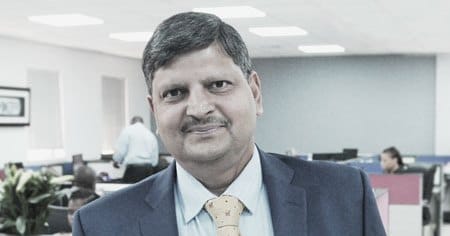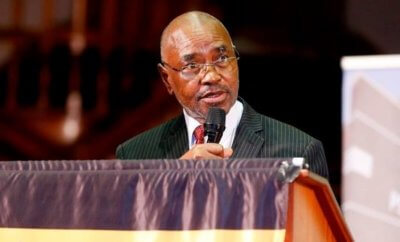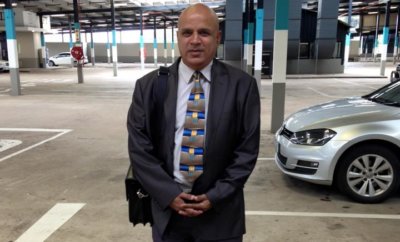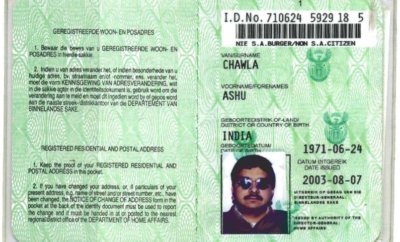News
Guptas, Who ‘Captured South Africa’ in Less Than Two Decades

From allegations of tax dodging to power play in government, the Gupta family’s journey from Saharanpur to South Africa is riddled with scandals.
When Atul Gupta first arrived in South Africa in the early 1990s to set up a small business, no one could have predicted the looming figures he and his two brothers would become in the country by the turn of the millennium. A quarter of a century later, the Guptas are mired in a mammoth controversy over complex multibillion-rand tax-avoidance scheme that the family allegedly indulged in.
Huge Controversies
That this is the latest uproar to surround the family, reveals the role that the owners of Sahara Computers came to carve for themselves during the last couple of decades. They have been engulfed in several huge controversies, ranging from alleged capture of huge stretches of land and suborning of state institutions to influencing Cabinet appointments and state-owned companies, and using proximity with President Jacob Zuma for undue gains.
The Guptas have been criticised a lot by the media as well as the general public for their alleged wrongdoings. In early April this year, large crowds protested against Zuma’s recent cabinet shuffle during a campaign that came to be called ‘The Zuma Must Fall campaign’. Around 50,000 South Africans expressed their anguish at corruption within the ANC government, unfair business deals by the state to favour the Gupta family, and economic problems plaguing the country.
Thousands of people wielded placards lambasting Atul Gupta, many even carrying his photographs, and the hashtags #Notmypresident and #zumamustfall quickly went viral.
Explosive Emails
A series of emails leaked over the last few months has been used to show the extent of control the family exerts in political as well as business circles in the country, as well as the alleged tax fraud they resorted to. The Guptas allegedly used personal and inter-company loans to and from their companies, many of which are offshore, through a practice known as “staggering” or revolving loans, The Times cited tax experts as saying.
The correspondence also reveals the role of Zuma’s son Duduzane in government matters. Duduzane, a associate of Gupta, is said to have made billions through the partnership. The family was believed to have pulled favours with officials with a plan to move President Zuma and his family to Dubai, the City Press newspaper reported.
The Guptas first met Zuma, who was the vice president then, at a function hosted by them at Sahara Estate in 2003, and cemented their ties in the subsequent years. The family supported Zuma during his struggle for power at the African National Congress (ANC) with the then president, Thabo Mbeki, in 2005. The close ties were so talked about in the country that the term ‘Zupta’ began used to be used for the association between the two families.
Scandals involving ‘Zuptas’
In 2010, Gupta’s firm Imperial Crown Trading (ICT), along with Duduzane who was a part owner in the company, were involved in a dispute with ArcelorMittal and Anglo American plc over the rightful ownership of Kumba Iron Ore, which owns Sishen mine, one of Africa’s largest iron mines. The Constitutional Court ruled in 2013 that the Gupta-Zuma consortium could not claim rightful ownership.
The ties between the two families, however, came under direct spotlight in 2013, when the family organised a lavish multi-million four-day gala for the marriage of Vega, the daughter of the Gupta brothers’ sister, Achala. A family plane carrying wedding guests was found to have landed at the Waterkloof Air Base near Pretoria, which is usually reserved for foreign dignitaries.
The family was also alleged to have worked closely with Zuma to secure interests in nuclear energy sector, according to the Rand Daily Mail. The Guptas, along with Duduzane Zuma, were also in storm for an attempt to influence the awarding of a Rs 51 billion contract to deliver 600 trains to South Africa on behalf of the China South Rail company.
VR Laser Services, in which the Guptas and Duduzane own 25 per cent stake, entered into a partnership with the government-owned aerospace and defence company Denel to establish Denel Asia, based in Hong Kong, an alliance that the Opposition, Democratic Alliance, alleged was illegal.
From Small Businessmen to Tycoons
The three brothers – Atul, Ajay and Rajesh – arrived in South Africa a few years apart from each other from Saharanpur, a small nondescript town in Uttar Pradesh, where their father Shiv Kumar Gupta ran a business of distributing soapstone powder, and imported spices from Madagascar and Zanzibar. Atul, the middle one of the three brothers, was the first one to land in the country, and opened a shop in 1993.
He shortly set up his computer business Sahara Computers, which, in 2016, had an annual turnover of about $22 million and employed 10,000 people, according to an Indian Today report. The family is now based at the Sahara Estate in Saxonwold, Johannesburg, a compound comprising at least four mansions, and in Dubai.
In 2016, Atul Gupta became the 7th wealthiest person in South Africa with an estimated net worth of R10.7 billion (US$773.47 million), according to JSE-listed holdings.
Steep rise indeed. And a roller-coaster one that seems well on its way to turbulent times now.




1 Comment
You must be logged in to post a comment Login